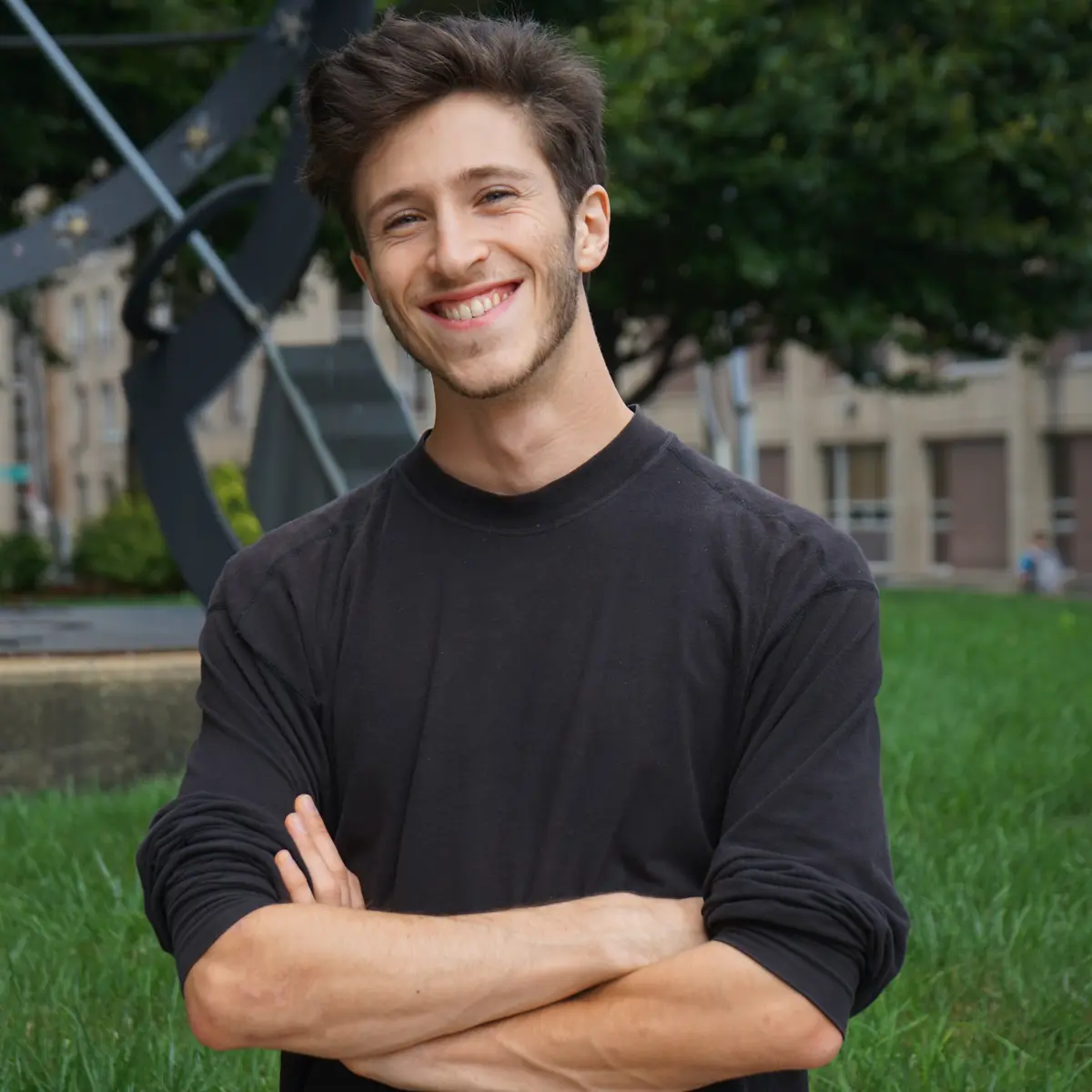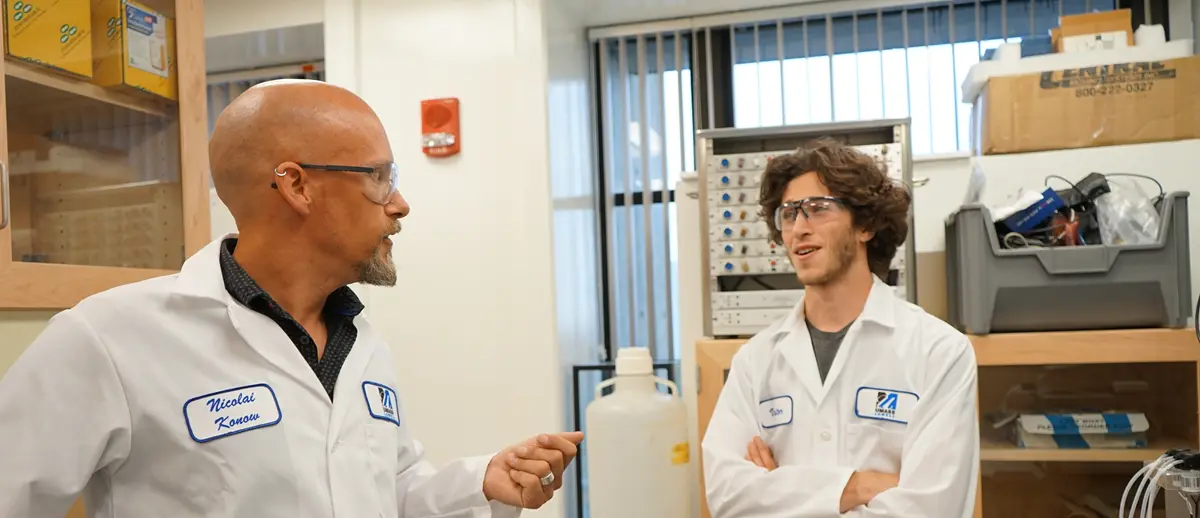Jacob Solomon always wanted to be a biologist.
But after a year as a biology major, the honors student decided to stretch himself by studying journalism and professional writing instead. Then he added a second major in math.
He’s found ways to combine all of his interests, first in a professional internship – writing an internal newsletter for the 4,000 employees of MIT Lincoln Laboratory – and then through an Honors College research fellowship with Nicolai Konow, Ph.D., a functional biologist.
In Konow’s lab, Solomon has figured out how to use a complex research technique called XROMM (X-ray Reconstruction Of Moving Morphology). It combines two X-ray videos of a live animal, taken simultaneously from different angles, with a CT scan to generate a 3-D computer avatar, so that the internal movements of the animal’s hard tissue can be analyzed and measured in detail. Solomon started with film of an African lungfish eating a cricket.
“I literally jumped for joy when I got my first animation to work,” he says.
Next, he spent the summer working with Konow at Harvard’s Concord Field Station. Solomon used XROMM to analyze the feeding systems of axolotls, or Mexican salamanders, which live underwater but have rudimentary lungs and feet. He will also analyze amphiumas, salamanders with lungs and tiny feet.
All three are aquatic animals related to the now-extinct fishopods, creatures that crawled from water to land about 400 million years ago – very, very slowly. Their development of lungs and feet has been studied extensively, but how they went from eating underwater to eating on land has not. Konow thinks that the evolution of their jaws, tongues and guts may explain why it took them so long to complete the transition.
“We’re doing this research to fill a gap in a focal point of evolutionary biology, but we hope it will also help with medical applications,” says Solomon, who is focusing on the jaw joint and related muscles and tendons. “What we’re trying to build here is not just knowledge of how the jaw works, but how it came to be, which might give a more foundational knowledge of how to address jaw joint problems in humans.”
The project will be Solomon’s honors capstone, and he has applied to present his research at a professional conference next year.
Solomon says the Honors College ethos of breadth and depth has inspired him to explore multiple disciplines and become a citizen of the world. He’s also minoring in Spanish and studied abroad for three weeks one summer with Maria Matz, Ph.D..
“As a college student, I don’t just want to do such-and-such professional task. I want to learn and convince myself that the world is accessible to me. So that’s what I did with this fellowship,” he says.
“It’s the same with study abroad. That experience of going overseas to a completely unfamiliar place, with very little Spanish and very little help getting around, made me realize on a deep level that I can just go to another country and figure it out.”


